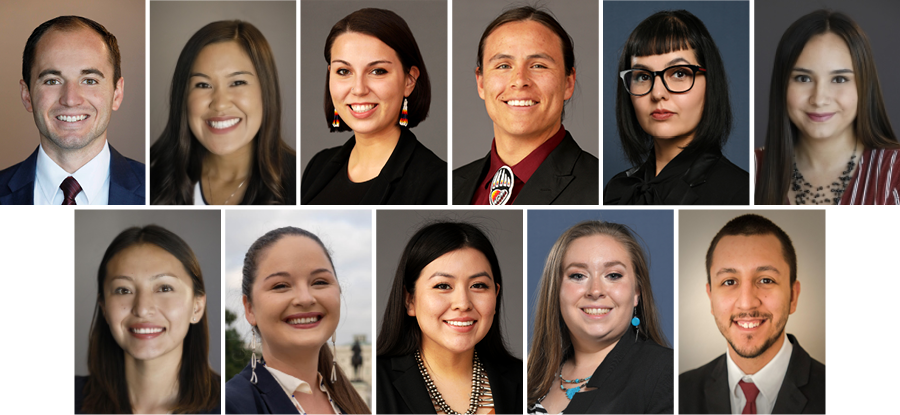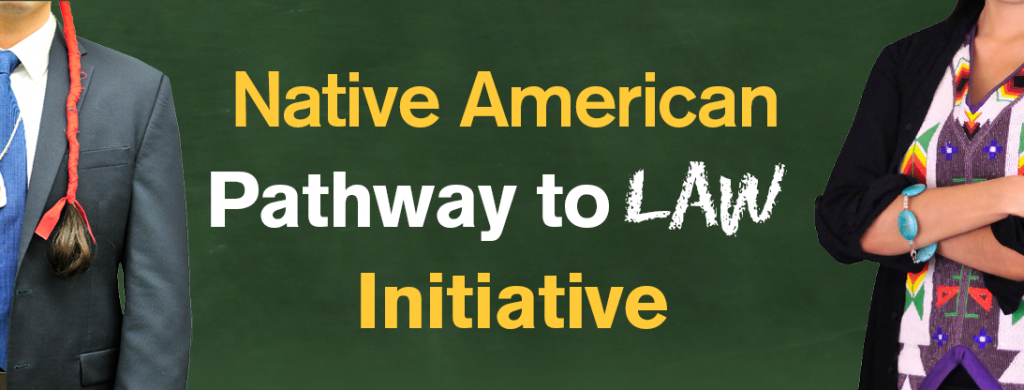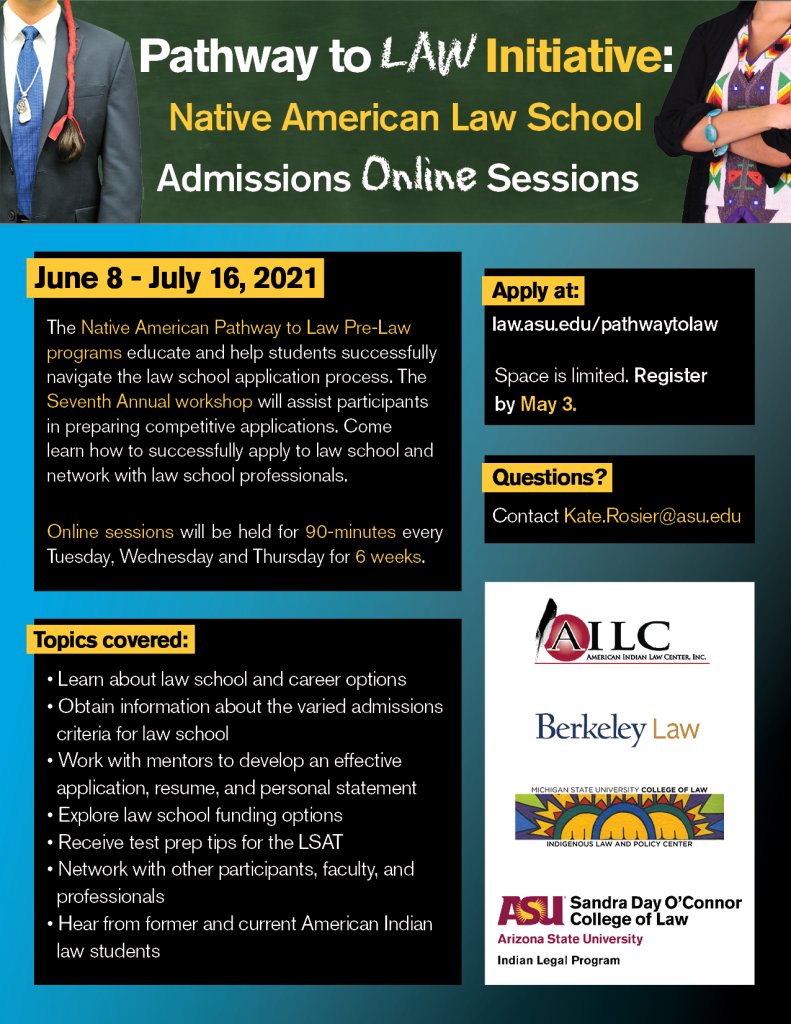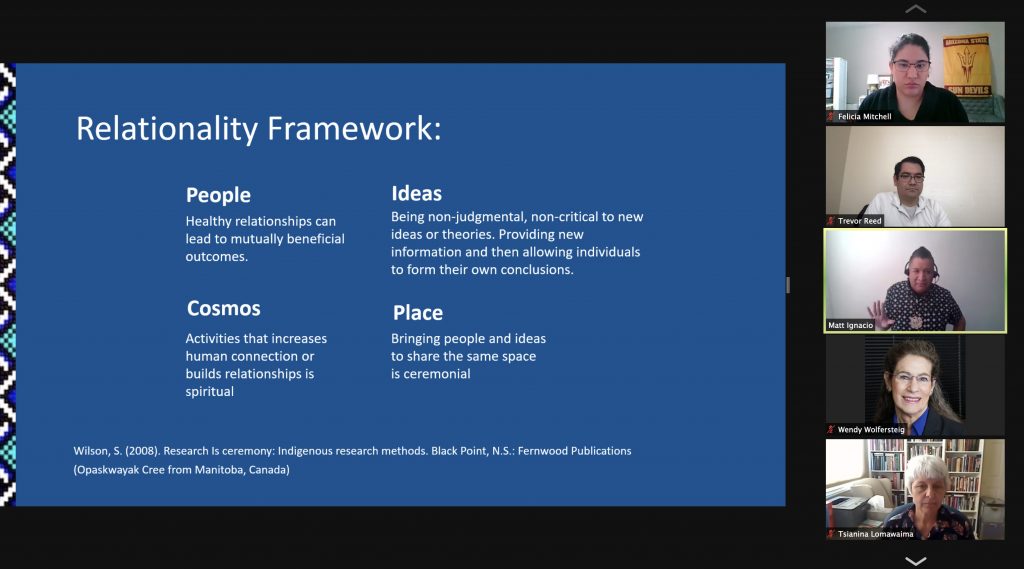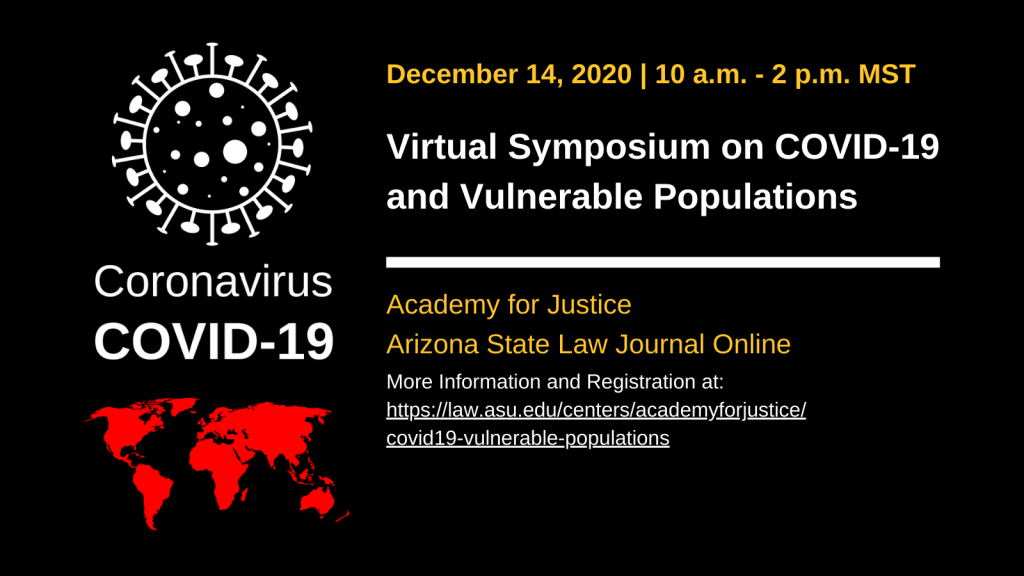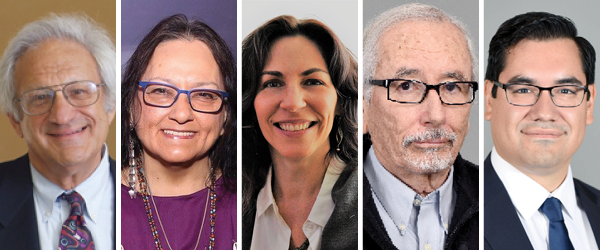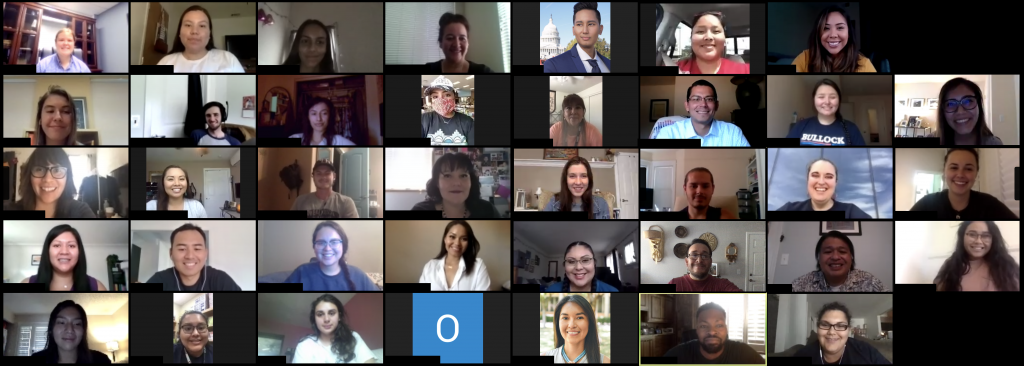
The Indian Gaming and Tribal Self-Governance programs hosted a presentation “Indian Gaming in Texas: Ysleta del Sur Pueblo v. Texas & Alabama-Coushatta Tribe of Texas v. Texas” on Nov.10. Ronnie Thomas, treasurer for the Alabama-Coushatta Tribe, and Fred Petti, attorney for the Alabama-Coushatta Tribe, joined the ILP to discuss the history of Indian gaming in Texas and how Ysleta del Sur Pueblo v. Texas ended up before the Supreme Court. The Alabama-Coushatta Tribe submitted amicus briefs in support of the matter since the holding could result in ground-sweeping changes in how Indian gaming is conducted in Texas.
Lunch was provided at this in-person event, which was also livestreamed so the ILP’s MLS and LLM online students could participate as well. Derrick Beetso (’10), director of the Indian Gaming and Tribal Self-Governance programs, said, “I really enjoyed this event. The representatives from the Alabama-Coushatta Tribe shared important and interesting perspectives on how amici can help further collective litigation goals in Indian Country. I thought it was an important and practical discussion to have that is not always explained in law school courses.”

“I’m inspired by the actions of the Alabama-Coushatta Tribe because the purpose of pursuing legal action was not solely about Indian gaming, but how this activity could serve the tribe for the next seven generations,” said 3L Hilary Edwards . “Mr. Thomas shared how his tribal community has benefitted from the tribal gaming facility, like supporting tribal members to achieve higher education. I was encouraged when Mr. Thomas said, ‘We encourage our tribal students who achieve higher education to get off-reservation experience and then bring that experience back to work for the tribe.’ This is precisely what I strive to accomplish. I desire to be qualified with experience to be able to contribute and serve my tribal community. These events further validate my decision to attend law school and further encourages me to continue on with the fight.”

